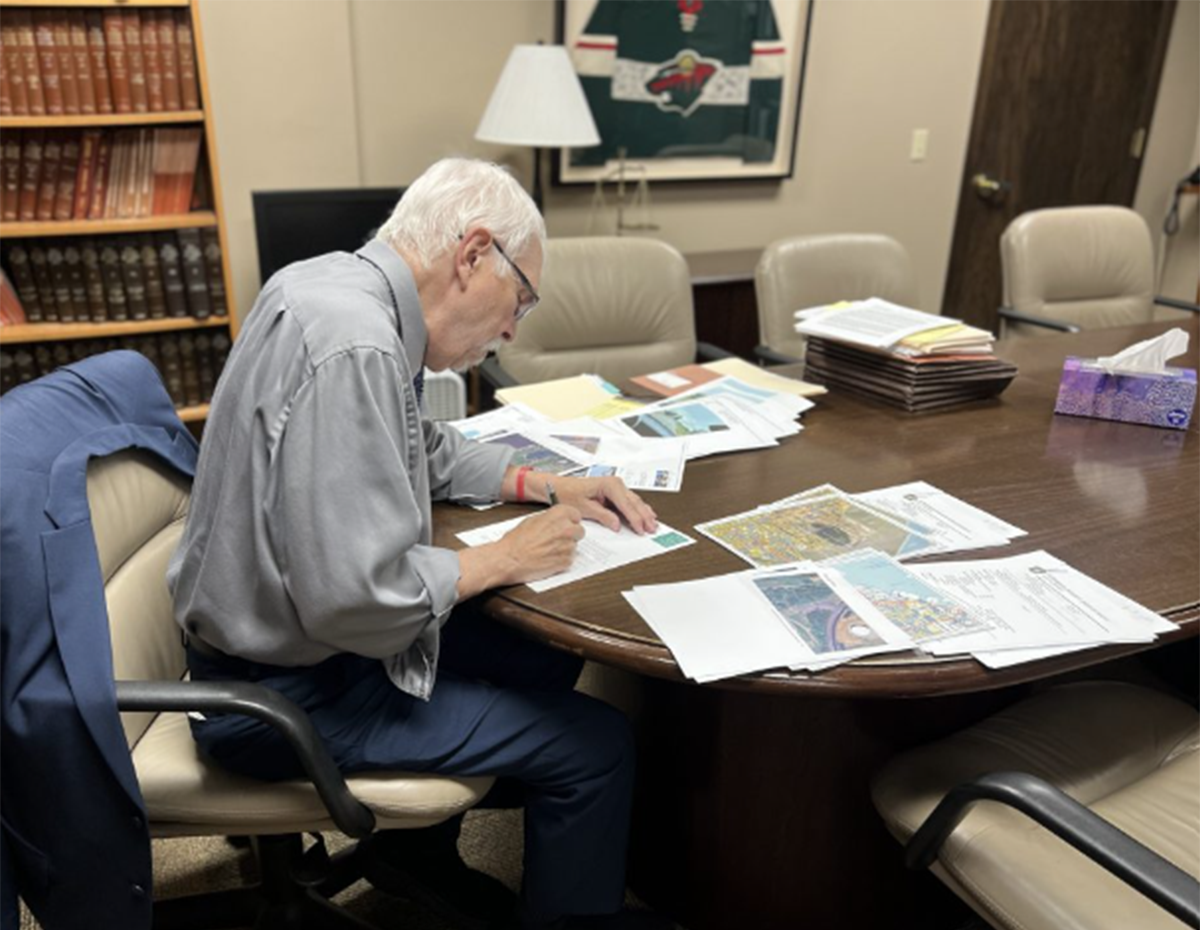Editor’s note: This is the first in a two-part series on Wisconsin’s proposed gay marriage amendment. Part two will run next Monday.
Students, community members and families – including one 15-month-old infant – gathered Thursday night on campus to discuss the proposed state constitutional amendment banning gay marriage and civil unions.
Organizations including UW-Eau Claire’s Lesbian Gay Bisexual Transgender Straight Alliance sponsored the meeting, which drew about 60 people to Schneider 100.
“If this amendment passes, it would be the first time the Wisconsin Constitution was amended to single out one group of people and take away their freedoms,” said Christopher Ott, executive director of Action Wisconsin, a statewide LGBT rights organization.
The proposed amendment reads, “Only a marriage between one man and one woman shall be valid or recognized as a marriage in this state. A legal status identical or substantially similar to that of marriage for unmarried individuals shall not be valid or recognized in this state.”
Ott explained that the language of the proposed amendment would prohibit not only gay marriage, but civil unions and domestic partnerships as well.
“It would be one of the harshest anti-gay measures anywhere in the country,” Ott said. He added that in the less-publicized April election, low turnout would likely result in a higher percentage of older voters, who are less likely to support gay rights.
Barbara Stevens, assistant to the chancellor for affirmative action, opened the meeting. She said part of her job is recruiting diverse students to the university, and she worries about the message the proposed amendment would send.
“I am horrified by the idea of what it makes Wisconsin look like as a place to live and work,” she said.
Several speakers recounted difficulties they had faced because they were not legally recognized as a couple.
Melissa Smith-Tourville wept as she read a prepared statement about the custody battle over her 15-month-old son, who had been in foster care with her and her partner Mandy Smith-Tourville since shortly after his birth. His birth mother and father, she said, had asked the couple to adopt him.
“It should have been a very straightforward adoption,” she said.
But when her son’s court-appointed guardian learned that he was about to be adopted by a lesbian couple, Melissa said, the guardian stepped in to prevent the adoption. The couple was denied custody.
“We expected that we would win on Aug. 25,” she said. “The judge just completely blindsided us.”
On the day of the surprise decision, she said, the words “queer” and “bastard” were used in the court. The guardian, she added, had never met her son. The Smith-Tourvilles are appealing the decision.
Melissa and Mandy Smith-Tourville are the founding leaders of Proud Generation, a groupfor LGBT and questioning youth in Menomonie. They have seven foster children.
Virginia Wolf, a Unitarian Universalist minister in Eau Claire, said her son once had an accident while she was out of town. He needed surgery, but the hospital would not proceed on her partner Carol Schumacher’s permission.
The hospital had to contact Wolf – “these were the days before cell phones,” she added – before beginning the surgery.
Wolf and Schumacher have been together for nearly 30 years. They were married in a church wedding in 1990, Wolf said.
Kimberly Barrett, associate vice chancellor for student development and diversity, said she came to Eau Claire about a year ago from Canada, where same-sex marriage has been effectively legalized. She told the group she believes different minority groups must stand up for each other.
“What is it that allows people to take such liberty with the rights of other people?” she asked. ” … If there’s injustice for one group, there’s injustice for all of us.”






